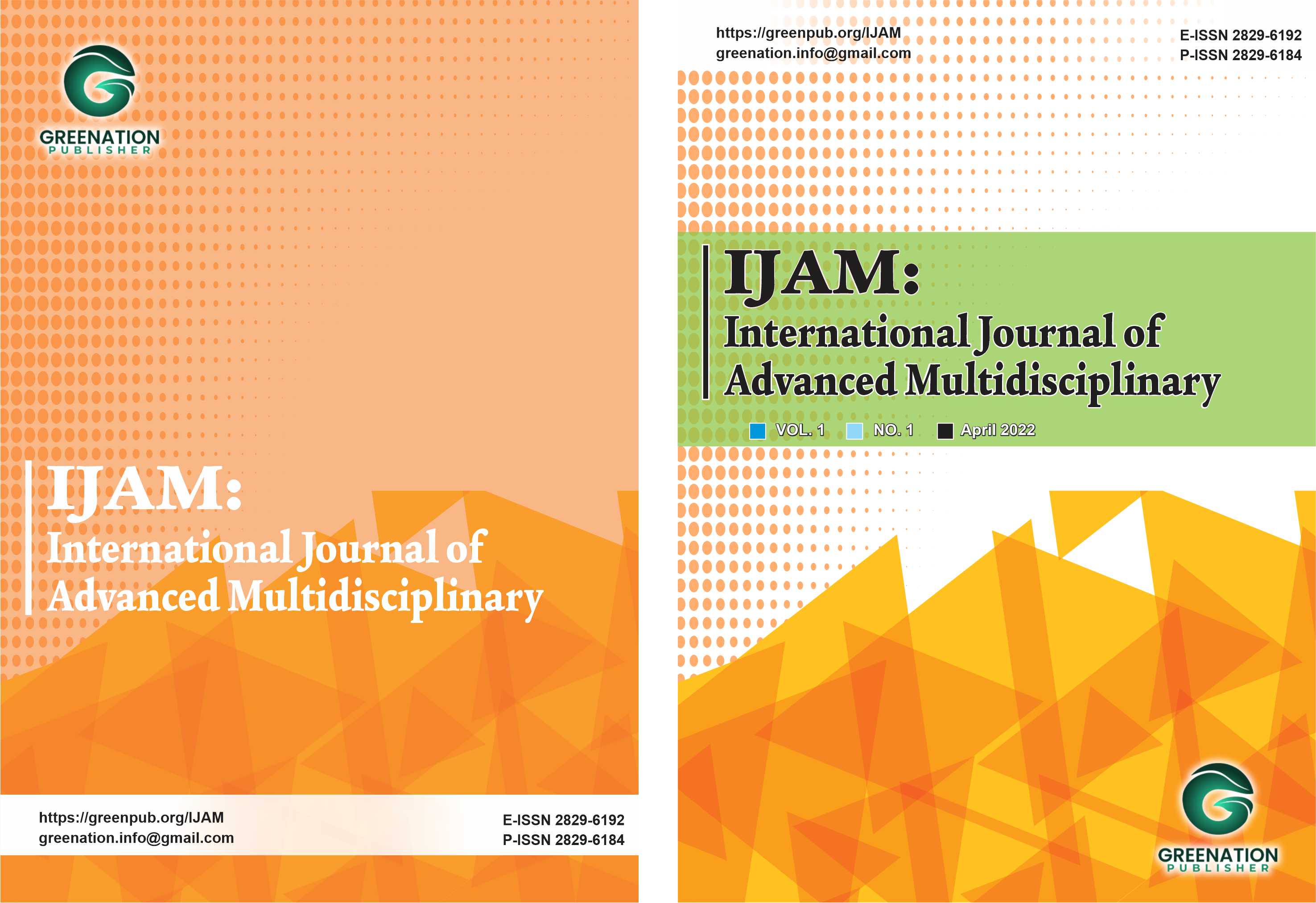The Promising Ethics and Competitive Advantage on Higher Education As A Part of International Collaboration Programs
DOI:
https://doi.org/10.38035/ijam.v2i2.341Keywords:
Promising Ethics, Competitive Advantage, International CollaborationAbstract
Promises ethics in service triangle context on higher education can be met if performance improves superior performance and be given the implications for competitive advantage. The purpose of this study was to analyze and determine promising ethics in service marketing triangle and competitive advantage of higher education. The research method used is survey method, namely descriptive and explanatory. The number of respondents in the study is 330 students of the polytechnic in West Java, which is determined by sampling technique, which is cluster proportional random sampling. The hypothesis testing was done using a multivariate statistical test of the Partial Least Square (PLS). The data processing was done with smartPLS 2.0 programs and Statistical Programs of Social Science (SPSS) for Windows. The results show that: The promising ethics in service triangle context and competitive advantage influence as well but not quite good. The goal of internationalization of higher education are: (1) improve the quality of education (2) improve the quality of research (3) improve the competence and capacity of academic staff and researchers (4) improve the competence and capacity of graduates (5) enhance the college's reputation in the eyes of the international and financial gain (6) respond to the demands of the labor market of qualified internationally. There are five (5) general principles of corporate governance known as good corporate governance (GCG). Those are: Transparency, Accountability, Responsibility, Fairness and Indepandency.
References
Barney, Jay B and Deleyn N. Clark. 2007. Resource-Based Theory: Creating and Sustaining Competitive Advantage. New York: Oxford University Press.
Carothers, G.H. Jr, Adams, M. in Stahl, M.J. Bounds, G.M (Eds) 2008. Competitive advantage through customer value: the role of value based strategies,
Cravens, David W. and Nigel F. Pierey. 2009 Strategic Marketing. 9th Edition. New York: McGraw-Hill.
Frisque, D. A., Lin, H., & Kolb, J. A. (2004). Preparing professionals to face ethical challenges in today’s workplace: Review of the literature, implications for PI, and a proposed research agenda. Performance Improvement Quarterly, 17(2), 28-45.
Hunter Hall Investment Management Limited (2012). Ethical Investment Policy. Available at http://www.hunterhall.com.au/about.html#ethical_policy
Kotler, Philip dan Keller. 2009. Marketing Management, 13rd edition. New Jersey: Prentice Hall.
Marta, J-, Singhapakdi, A., Kraft. K. 2008. Personal Characteristics Underlying Ethical Decision in Marketing Situation; A Survey of Small Business Manager. Journal of Small Business Management. 46, pp 589-606.
Muchina, S. Popovici, V. 2008. Ethics in Marketing Communication. University of Constanta. Not Published.
Nauman, E. 2005. Creating Customer Value. The Path to Sustainable Competitive Advantage, Thomson Executive Press. Cincinnati, OH.
Nicholls, J, Harris, J., Morgan, E., Clarke K dan Sims, D. 2005. Marketing Higher Education: the MBA experience, The International Journal of Educational Management, Vol. 9, No. 2, pp 59-72.
Olorunniwo, F. Hsu MK dan Udo GF. 2006. Service quality, customer satisfaction and behavioral intentions in the service factory. Journal of Service Marketing. Vol. 20 No. 1, pp 59-72.
Paul, Peter and Jerry Olson, 2008. Consumer Behavior and Marketing Strategy, 8th. McGraw Hill.
¬Petersen, L., Krings, F. 2009. Are Ethical Codes of Conduct Toothless Tigers for Dealing with Employment Discrimination. Journal of Business Ethics. 85:p 501-514
Porter, Michael E., 1999., Competitive Advantage, New York, The Free Press.
Tryon, E., Stoecker, R.M. Martin, A., Seblonka, K., Hilgendorf, A., & Nellis, M. (2008). The challenge of short-term service-learning, Michigan Journal of Community Service Learning Spring 2008, p.16-26.
Velasquez, M. 2005. Business Ethic, Concept and Cases. Englewood Cliff: Prentice Hall
Weston, R., Brooks, R., Gladman, J., Senior, K. and Denley, L. (2009). Ethical research in partnership with an Indigenous community. Australasian Psychiatry, 17: Supplement 1, pp. S51-53.
Winchester-Seeto, T. & Mackaway, J. (2011). Ethics and ethical practice in Learning through Participation (LTP). Discussion paper, Macquarie University.
Zeithaml, Valarie A. and Mary Jo. Bitner. 2003. Service Marketing. New York: Mc Graw-Hill.
Downloads
Published
How to Cite
Issue
Section
License
Authors who publish their manuscripts in this journal agree to the following conditions:
- The copyright on each article belongs to the author(s).
- The author acknowledges that the International Journal of Advanced Multidisciplinary (IJAM) has the right to be the first to publish with a Creative Commons Attribution 4.0 International license (Attribution 4.0 International (CC BY 4.0).
- Authors can submit articles separately, arrange for the non-exclusive distribution of manuscripts that have been published in this journal into other versions (e.g., sent to the author's institutional repository, publication into books, etc.), by acknowledging that the manuscript has been published for the first time in the International Journal of Advanced Multidisciplinary (IJAM).






















